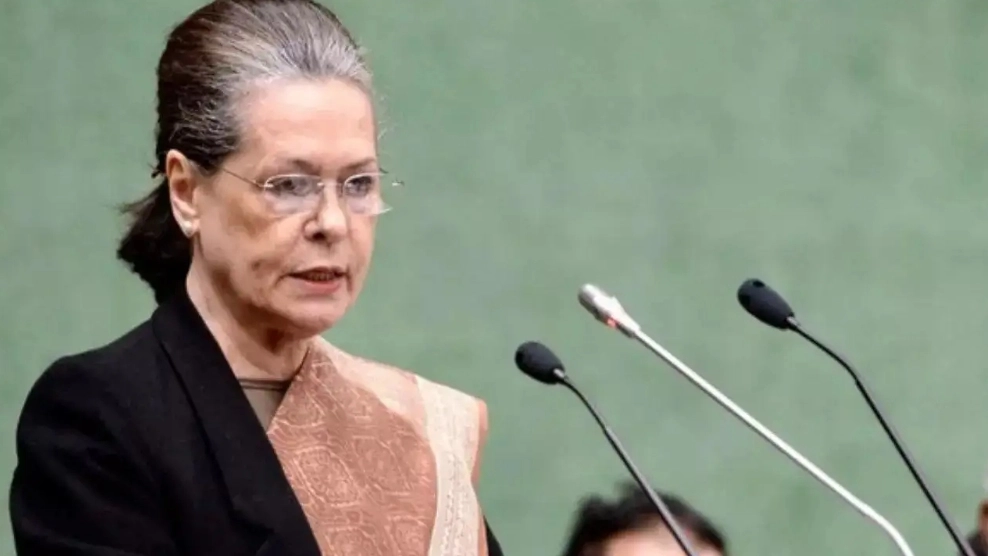Sonia Gandhi Tears Into NEP 2020: 'Tool For Centralisation, Commercialisation, Communalisation'

Congress leader
Sonia Gandhi has launched a scathing critique of the National Education Policy (
NEP) 2020, accusing the BJP-led Union government of using it as a mechanism for "centralisation of power, commercialisation, and communalisation" in India's education sector. "The Union Government’s track record over the last decade has convincingly demonstrated that in education, it is concerned only with the successful implementation of three core agenda items — the centralisation of power with the Union Government; the commercialisation and outsourcing of investments in education to the private sector, and the communalisation of textbooks, curriculum, and institutions," the former Congress president wrote in an opinion piece.
In the Op-Ed published in The Hindu, Sonia Gandhi further stated, "Unchecked centralisation has been the hallmark of this Government’s functioning over the last 11 years, but its most damaging consequences have been in the domain of education." She alleged that the government has consistently sidelined state governments, citing the Central Advisory Board of Education’s failure to convene since September 2019.
Gandhi also accused the Centre of "coercing" states into implementing the PM-SHRI scheme by withholding funds meant for the Samagra Shiksha Abhiyan (SSA). "These funds have been due to States for years as part of the financial support required to implement the Right of Children to Free and Compulsory Education (
RTE) Act," she wrote, adding that even the Parliamentary Standing Committee on Education had recommended the unconditional release of SSA funds.
Highlighting concerns regarding higher education, she pointed to the upcoming 2025 draft guidelines for the University Grants Commission (UGC), which she claimed would further limit state governments’ role in appointing vice-chancellors. "The Union Government has given itself — through the Governors who are typically designated as the Chancellor of the University — near-monopoly power in the selection of the Vice-Chancellors in State universities," she stated, warning that this posed a "grave threat to federalism."
Gandhi further alleged that the NEP promotes "unchecked privatisation" of school education, weakening the RTE Act’s guarantee of neighbourhood schools by encouraging "school complexes." According to her, this has resulted in the closure of nearly 90,000 public schools since 2014, while private schools have expanded.
On communalisation, Gandhi accused the government of "indoctrinating and cultivating hatred through the education system." She pointed to changes in NCERT textbooks that removed references to Mahatma Gandhi’s assassination and Mughal history and criticised faculty appointments based on ideological alignment rather than merit. "Leadership positions in key institutions... have been reserved for pliant ideologues," she wrote, cautioning that the dilution of qualifications for professors and vice-chancellors was part of this agenda.
Calling for an end to what she described as the "carnage" of India's public education system, she stated, "Over the last decade, our education systems have been systematically cleansed of the spirit of public service, and education policy has been sanitised of any concerns about access to and the quality of education."
 Congress leader Sonia Gandhi has launched a scathing critique of the National Education Policy (NEP) 2020, accusing the BJP-led Union government of using it as a mechanism for "centralisation of power, commercialisation, and communalisation" in India's education sector. "The Union Government’s track record over the last decade has convincingly demonstrated that in education, it is concerned only with the successful implementation of three core agenda items — the centralisation of power with the Union Government; the commercialisation and outsourcing of investments in education to the private sector, and the communalisation of textbooks, curriculum, and institutions," the former Congress president wrote in an opinion piece.
Congress leader Sonia Gandhi has launched a scathing critique of the National Education Policy (NEP) 2020, accusing the BJP-led Union government of using it as a mechanism for "centralisation of power, commercialisation, and communalisation" in India's education sector. "The Union Government’s track record over the last decade has convincingly demonstrated that in education, it is concerned only with the successful implementation of three core agenda items — the centralisation of power with the Union Government; the commercialisation and outsourcing of investments in education to the private sector, and the communalisation of textbooks, curriculum, and institutions," the former Congress president wrote in an opinion piece.